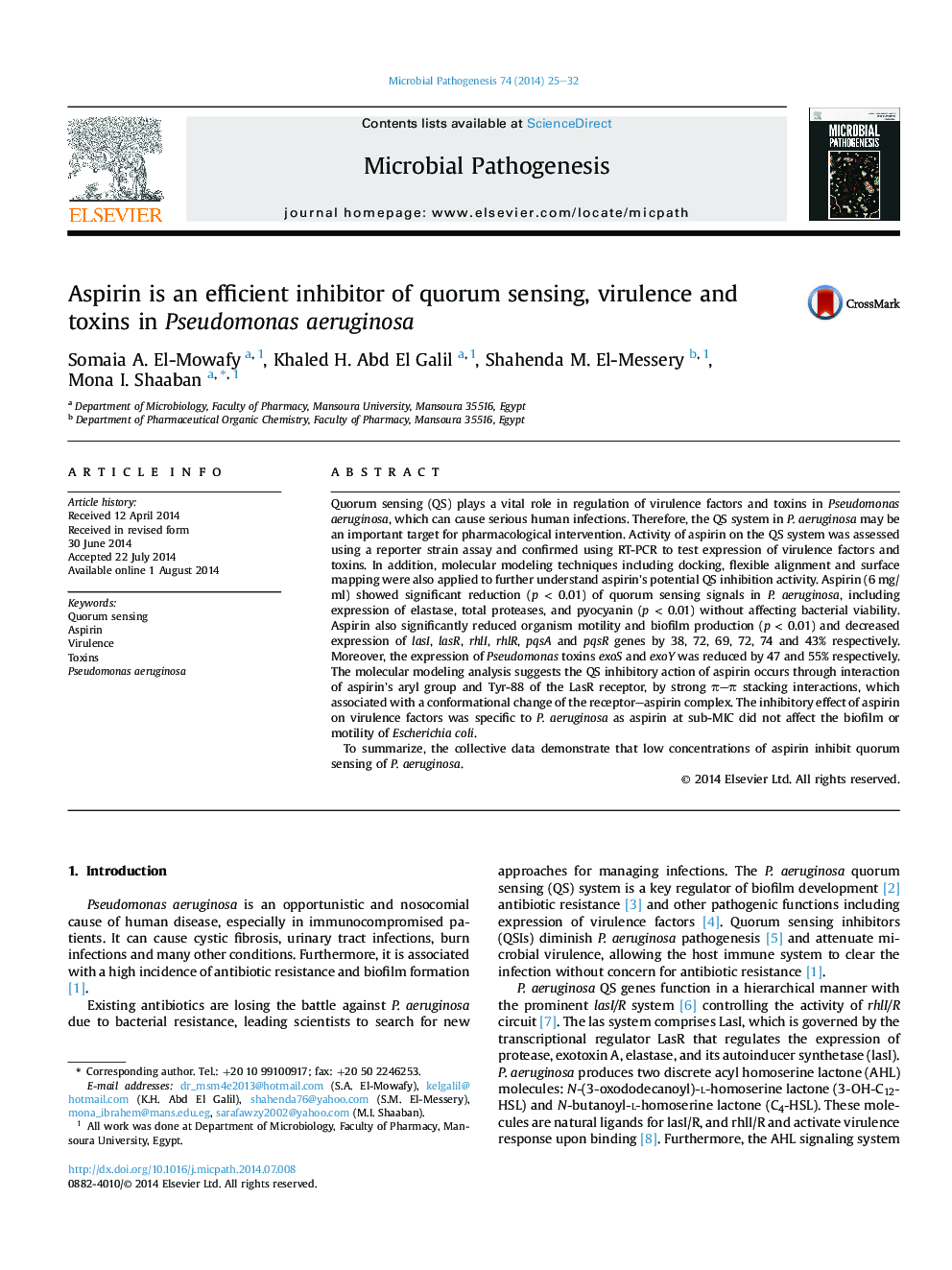| Article ID | Journal | Published Year | Pages | File Type |
|---|---|---|---|---|
| 3416561 | Microbial Pathogenesis | 2014 | 8 Pages |
•We assessed the influence of sub-MICs of aspirin on quorum sensing of Pseudomonas aeruginosa.•Aspirin (3–6 mg/ml) eliminated elastase, protease, hemolysin, pyocyanin, biofilm and motility.•RT-PCR data revealed inhibitory effect of aspirin on lasR as a key regulatory gene of QS circuit.•Computer modeling and alignments indicated conformation of the lasR–aspirin complex.•Overall, aspirin inhibited QS, virulence factors and toxins of P. aeruginosa.
Quorum sensing (QS) plays a vital role in regulation of virulence factors and toxins in Pseudomonas aeruginosa, which can cause serious human infections. Therefore, the QS system in P. aeruginosa may be an important target for pharmacological intervention. Activity of aspirin on the QS system was assessed using a reporter strain assay and confirmed using RT-PCR to test expression of virulence factors and toxins. In addition, molecular modeling techniques including docking, flexible alignment and surface mapping were also applied to further understand aspirin's potential QS inhibition activity. Aspirin (6 mg/ml) showed significant reduction (p < 0.01) of quorum sensing signals in P. aeruginosa, including expression of elastase, total proteases, and pyocyanin (p < 0.01) without affecting bacterial viability. Aspirin also significantly reduced organism motility and biofilm production (p < 0.01) and decreased expression of lasI, lasR, rhlI, rhlR, pqsA and pqsR genes by 38, 72, 69, 72, 74 and 43% respectively. Moreover, the expression of Pseudomonas toxins exoS and exoY was reduced by 47 and 55% respectively. The molecular modeling analysis suggests the QS inhibitory action of aspirin occurs through interaction of aspirin's aryl group and Tyr-88 of the LasR receptor, by strong π–π stacking interactions, which associated with a conformational change of the receptor–aspirin complex. The inhibitory effect of aspirin on virulence factors was specific to P. aeruginosa as aspirin at sub-MIC did not affect the biofilm or motility of Escherichia coli.To summarize, the collective data demonstrate that low concentrations of aspirin inhibit quorum sensing of P. aeruginosa.
